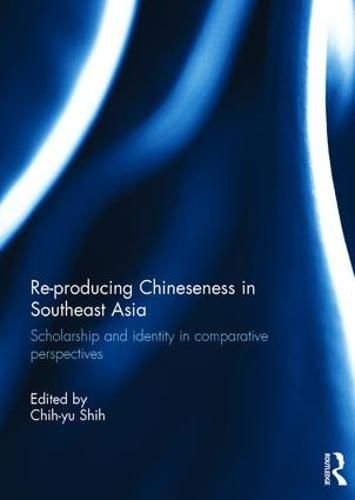Readings Newsletter
Become a Readings Member to make your shopping experience even easier.
Sign in or sign up for free!
You’re not far away from qualifying for FREE standard shipping within Australia
You’ve qualified for FREE standard shipping within Australia
The cart is loading…






Identity politics can impede Chinese identification in southeast Asia because the migrant population, particularly the intellectual aspect of that population, have to consider the political effects of their intellectual and social activities on the survival of Chinese communities. Similarly, these communities have to deal with the necessity of nation-building in the aftermath of the Second World War, which required integration rather than the exaggeration of differences. Consequently, restriction on self-understanding as well as self-representation has become more than apparent in Chinese migrant communities in southeast Asia.
With this in mind, identity politics can inspire self-understanding among the migrant communities, as intellectuals rediscover how humanism can enable a claim of ‘Chineseness’ that can be registered differently and creatively in a variety of national conditions. Migrant communities generally understand the importance of political accuracy, and this being accurate involves subscribing to pragmatism, something which is apparent in the scholarship and creative outputs of these communities. Humanism and pragmatism together are the epistemological parameters of self-representation, whereas civilizational and ethnic studies are their methodological parameters. This book was originally published as a special issue of Asian Ethnicity.
$9.00 standard shipping within Australia
FREE standard shipping within Australia for orders over $100.00
Express & International shipping calculated at checkout
Identity politics can impede Chinese identification in southeast Asia because the migrant population, particularly the intellectual aspect of that population, have to consider the political effects of their intellectual and social activities on the survival of Chinese communities. Similarly, these communities have to deal with the necessity of nation-building in the aftermath of the Second World War, which required integration rather than the exaggeration of differences. Consequently, restriction on self-understanding as well as self-representation has become more than apparent in Chinese migrant communities in southeast Asia.
With this in mind, identity politics can inspire self-understanding among the migrant communities, as intellectuals rediscover how humanism can enable a claim of ‘Chineseness’ that can be registered differently and creatively in a variety of national conditions. Migrant communities generally understand the importance of political accuracy, and this being accurate involves subscribing to pragmatism, something which is apparent in the scholarship and creative outputs of these communities. Humanism and pragmatism together are the epistemological parameters of self-representation, whereas civilizational and ethnic studies are their methodological parameters. This book was originally published as a special issue of Asian Ethnicity.